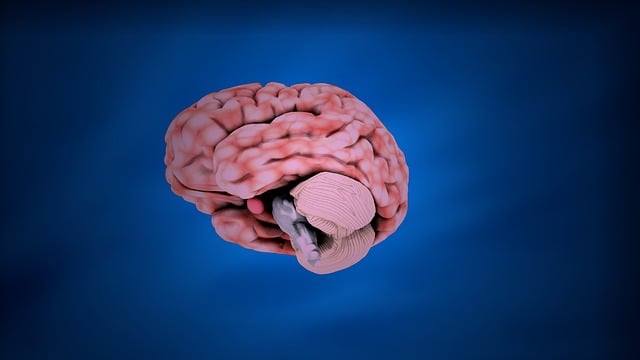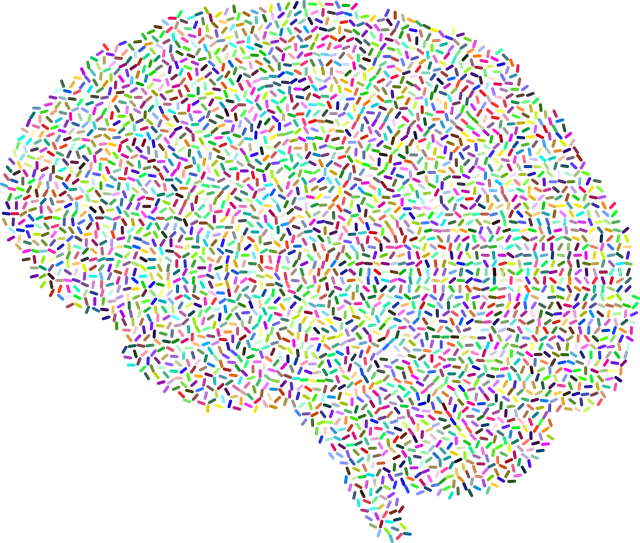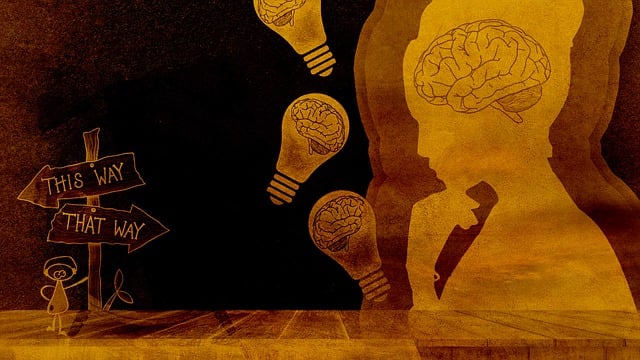Post-Traumatic Stress Disorder (PTSD) significantly impacts children who have experienced traumatic events, leading to symptoms like flashbacks and nightmares. Effective therapy involves Social Skills Training, Anxiety Relief techniques, and Mental Health Policy Advocacy. Stress management workshops, utilizing interactive activities, storytelling, and art therapy, are transformative tools for kids with PTSD, enhancing emotional resilience and mental wellness. These workshops, tailored to developmental stages and needs, equip children with coping mechanisms, foster emotional safety, and contribute to healthcare provider burnout prevention. Measuring their success shows significant reductions in PTSD symptoms and improved long-term mental health progress when integrated into comprehensive care models.
Stress management workshops play a pivotal role in empowering children to cope with post-traumatic stress disorder (PTSD). This article explores the transformative potential of such workshops, focusing on strategies to help kids navigate and overcome stress. We delve into understanding PTSD specifically in young individuals, highlighting the effectiveness of structured activities in managing their mental health. By examining key components like interactive games and therapeutic exercises, we offer insights into designing impactful workshops that foster resilience and long-term well-being for children dealing with PTSD.
- Understanding Post-Traumatic Stress Disorder in Children
- The Role of Workshops in Managing Child Stress
- Designing Effective Stress Management Workshops for Kids
- Facilitating Interactive and Therapeutic Activities
- Measuring Success and Long-Term Impact
Understanding Post-Traumatic Stress Disorder in Children

Post-Traumatic Stress Disorder (PTSD) can significantly impact children who have experienced traumatic events, such as accidents, violence, or natural disasters. Recognizing and understanding this disorder is crucial in developing effective therapy for children. The symptoms of PTSD in kids may include flashbacks, nightmares, severe anxiety, and avoidance behaviors related to the traumatic memory.
Social Skills Training and Anxiety Relief techniques are valuable tools in managing PTSD. These approaches help children process their experiences, build coping mechanisms, and improve their social interactions. In addition, Mental Health Policy Analysis and Advocacy play a vital role in ensuring that resources and support systems are accessible for children affected by PTSD, ultimately enhancing their mental health and overall well-being.
The Role of Workshops in Managing Child Stress

Stress management workshops play a pivotal role in addressing and mitigating child stress, especially among those who have experienced post-traumatic stress disorder (PTSD). These structured sessions provide a safe and supportive environment for children to learn effective coping strategies, allowing them to manage their emotional well-being more proactively. Through interactive activities, storytelling, and guided exercises, workshops cater to the unique needs of young minds, fostering self-awareness and resilience.
Targeting not just the symptoms but also the underlying causes of stress, these sessions can significantly improve a child’s self-esteem and overall mental wellness. Additionally, healthcare provider cultural competency training ensures that the facilitators are equipped to handle diverse populations, making the workshops inclusive and accessible. Such initiatives complement existing mental wellness coaching programs by offering a holistic approach, encompassing both individual growth and community support.
Designing Effective Stress Management Workshops for Kids

Designing effective stress management workshops for children requires a thoughtful approach that caters to their unique needs and developmental stages. These workshops should not only teach coping mechanisms but also foster an environment of emotional safety and support. Incorporating activities, games, and interactive exercises can help engage young participants while teaching them valuable skills in managing stress and anxiety.
Therapy for children with post-traumatic stress disorder (PTSD) often requires specialized crisis intervention guidance tailored to their specific experiences. Workshops should include emotional healing processes that address the root causes of stress and trauma, encouraging open communication strategies. By integrating these therapeutic elements into engaging workshops, professionals can equip kids with tools to navigate and overcome stress-related challenges, promoting their overall well-being.
Facilitating Interactive and Therapeutic Activities

Stress management workshops can be incredibly effective when incorporating interactive and therapeutic activities. These sessions should aim to engage participants actively in exercises that foster emotional well-being promotion techniques, especially tailored for children dealing with post-traumatic stress disorder (PTSD). Techniques such as art therapy, guided meditations, and role-playing games can help kids process traumatic experiences safely and creatively.
By integrating these therapeutic activities into workshop production, facilitators contribute to burnout prevention strategies for healthcare providers who often support children affected by PTSD. The interactive nature of the sessions not only enhances mental wellness podcast series production but also ensures that participants leave with practical tools to manage stress and promote their overall emotional well-being.
Measuring Success and Long-Term Impact

Measuring the success and long-term impact of stress management workshops is vital to understanding their effectiveness in promoting mental well-being. This involves assessing both immediate outcomes, such as participants’ perceived reduction in stress levels and improved coping strategies, as well as tracking their mental health progress over time. Longitudinal studies have shown that successful workshop programs can significantly decrease symptoms associated with Post-Traumatic Stress Disorder (PTSD) in children, enhancing their ability to manage stress and fostering positive thinking.
Risk management planning for mental health professionals plays a crucial role in this process. By integrating workshops into existing care models, healthcare providers can ensure continuous monitoring of participants’ mental health awareness and resilience. This holistic approach, combining therapy for children with PTSD, Mental Health Awareness education, and Positive Thinking techniques, has been proven to yield enduring benefits, contributing to the overall well-being and development of workshop attendees.
Stress management workshops play a vital role in providing therapy for children with post-traumatic stress disorder (PTSD). By designing interactive and therapeutic activities, organizations can effectively help kids cope with stress and its underlying causes. Measuring success through long-term impact assessments ensures the sustainability of these programs, ultimately fostering healthier and more resilient youth.









